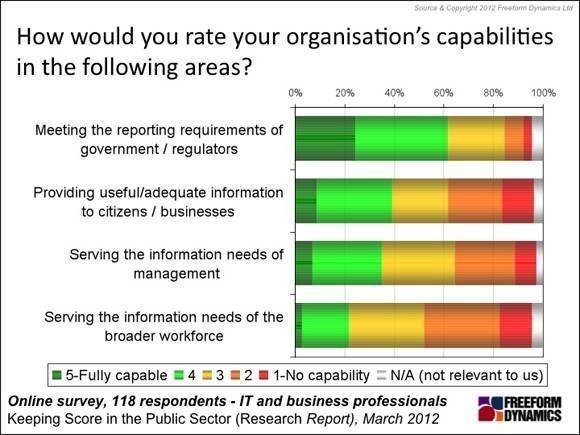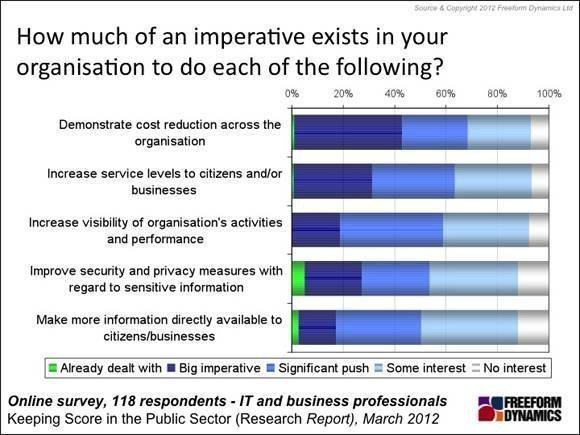Information management: lessons from the public sector
Freeform Dynamics identifies the lessons organisations can learn from the public sector's approach to information management
When it comes to information management, many of the challenges faced by all organisations are amplified for those in the public sector.
Whether it’s local or central government, social services or law enforcement, education or not-for-profit entities – they all hold highly sensitive information about citizens and businesses, as well government matters, that must be kept safe and secure.
At the same time, most of them are obliged, or under pressure, to make information of public record as freely available and easily accessible as possible.
In addition, many are increasingly asked to measure and report on their performance. They’re also expected to be responsive to ad hoc report and information requests from a wide set of stakeholders with disparate needs and expectations, including government departments, regulators and the media, as well as businesses and citizens. And all of this in an environment that is publicly looking for savings and cost reduction.
The extent of the challenge was confirmed in a recent online survey, where Freeform Dynamics asked IT professionals in the public sector about various issues related to information management and provision (Figure 1).
When it comes to addressing the challenge, the responses show that information provision capabilities are most advanced when it comes to meeting the requirements of government and regulators (Figure 2).
This comes as no surprise, just as it’s no surprise that regulatory compliance and the needs of the finance department are top priority in the financial services sector. But as Figure 2 also shows, there is much room for improvement when it comes to meeting the information requirements of internal and other external stakeholders.
Improve security without major investment
Bearing in mind the overwhelming pressure to cut costs, it is unlikely that funds will be made available for major projects aimed at addressing this issue. But this doesn’t mean nothing can be done. In fact, there are a number of ways in which improvements can be made without requiring significant investment. Three areas stand out:
Download in-depth research from Freeform Dynamics
- Making better use of the reporting and analytics capabilities of desktop tools and server-side solutions that are already in place. None of our survey respondents felt their organisations exploit server capabilities to their full extent, and only a handful reported that they are making the most of the desktop software they have already invested in. Getting more out of existing software and tools not only avoids spending more money, it also leads to, or at least shows, a better return on investment.
- Improving collaboration within the organisation, and between an organisation and its external partners. Many organisations realise they could deliver information and services in a more efficient, effective and timely manner if they collaborated better, even though not many have yet taken steps to make it happen.
- Breaking down internal barriers. Just as with any private company, in the public sector too it’s not just data silos that stand in the way of effective information provision. While we didn’t specifically ask about this in the survey, it is clear that departmental fiefdoms and internal demarcation lines are just as much of a hindrance.
Addressing any of these aspects is easier said than done. Getting more out of existing IT investments requires putting time and resources into identifying and putting in place the most appropriate capabilities, and additional training will no doubt have to be provided.
Dismantling internal barriers and improving collaboration both touch upon difficult challenges, namely changing behaviour and changing culture. And while it all may sound obvious, it’s nevertheless worth highlighting, in particular as our study shows that those who are more confident of meeting the requirements likely to be requested of them in the coming three years have already progressed further in actually making it happen.
Martha Bennett is vice-president, head of strategy, at Freeform Dynamics.
Download the full report here.











